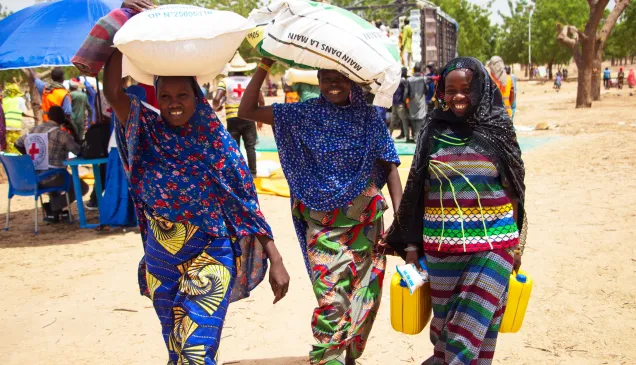Report of the United Nations High Commissioner for Refugees, questions relating to refugees, returnees and displaced persons and humanitarian questions. Statement given by the ICRC.
Sadly, 2016 marks yet another year of record-high global forced displacement. Some two thirds of those affected are internally displaced. The main causes are well known. Not enough is being done by States to prevent and resolve armed conflict, and far too little is being done to respect and ensure respect for international humanitarian law.
The ICRC welcomes the New York Declaration for Refugees and Migrants as an important political expression by the international community of the need to improve its response for these vulnerable groups. We will support the elaboration of both global compacts by sharing our experience and expertise.
The ICRC would like to take this opportunity to call upon States to keep the focus on internal displacement, as it continues to be one of the gravest humanitarian concerns of our times. The majority of people who are uprooted by armed conflict and other situations of violence remain within their own country. In cases where a nexus exists with the movement of people across international borders, a holistic approach is required, which should also seek to prevent and address internal displacement. This includes effectively protecting and assisting all civilians in countries affected by armed conflict, for which much greater respect for international humanitarian law remains key. The ICRC stands ready to play its part, but reiterates that the primary responsibility for protecting and assisting civilians lies with the parties to armed conflict.
As part of its continued support for the African Union’s Kampala Convention, the ICRC has just published the conclusions of a stocktaking exercise identifying lessons learned, good practices and key challenges in States’ efforts to translate the Convention into real improvements for IDPs and host communities. We hope that this report will be regarded as a useful tool by the African Union, its member States and sub-regional organizations, and will contribute to much-needed sharing of experiences on how best to implement the Convention.
One of the cross-cutting issues that emerges from the report is the need to engage in active dialogue with displaced and host communities. IDPs must be able to participate in the planning, implementation and evaluation of programmes so that their individual perspectives, needs and capacities are taken into account.
Displaced children are vulnerable to family separation and to forced recruitment, and often have psychological and psychosocial needs related to the trauma of displacement. Too many remain without access to education, sometimes for years, with long-term consequences for them and their families.
The ICRC hopes that the forthcoming High Commissioner’s Dialogue on Protection Challenges will explore further how authorities and organizations can give greater priority to including displaced children in educational and other programmes. The ICRC continues to engage with parties to armed conflict regarding their obligations under international humanitarian law towards civilians and civilian objects, reminding them to protect and respect schools, teachers and students. We also call upon States and parties to armed conflict to ensure that displaced children can continue to receive an education, including through the lifting of administrative barriers.
The ICRC supports children and families displaced by conflict and other situations of violence in many ways and stands ready to support any efforts made to ensure that displaced children have access to education.



